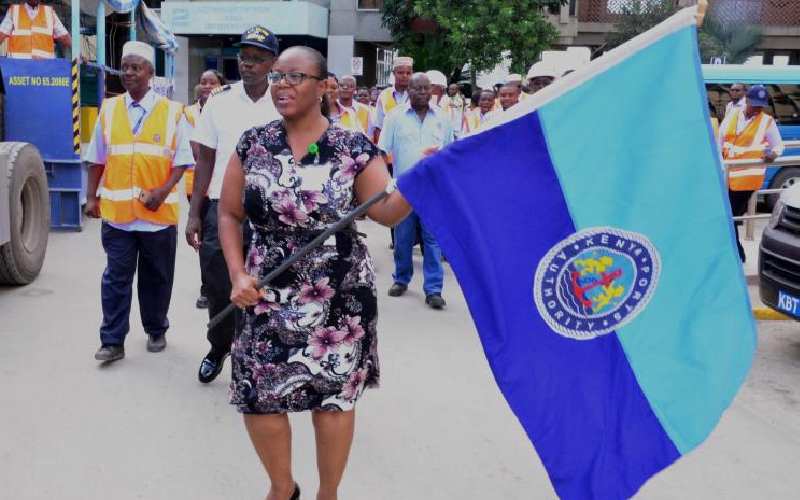×
The Standard e-Paper
Smart Minds Choose Us

Kenya Ports Authority (KPA) employees during Safety awareness campaign on May 28, 2018. [Gideon Maundu, Standard]
President Uhuru Kenyatta will on Friday commission a modern shipyard at the Port of Mombasa amid a looming strike by Kenya Ports Authority (KPA) employees in a row over salary increment.